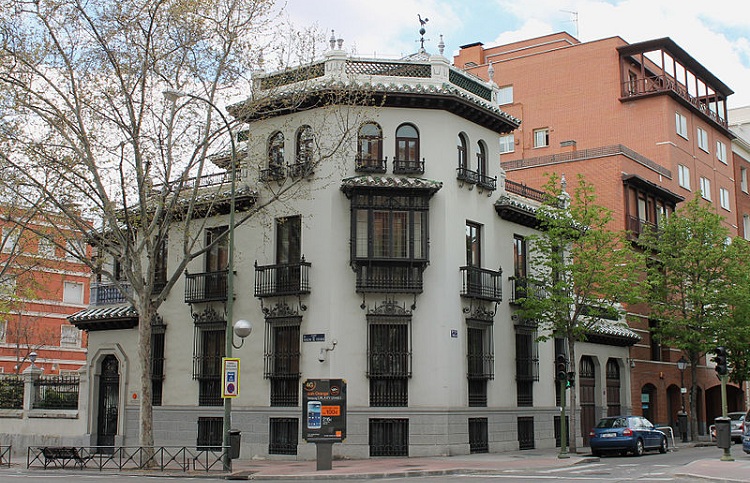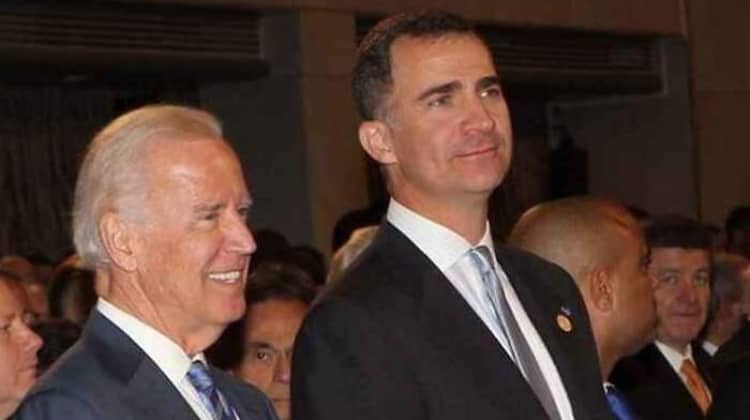The Diplomat
The war in Ukraine has become for Spaniards the main problem in Europe, far above even COVID-19, which has practically disappeared among the concerns, according to the Barometer of the Elcano Royal Institute, made public yesterday and especially dedicated to the war and the upcoming NATO Summit in Madrid.
In general terms, the main problem for Spaniards is the war in Ukraine (58%), far behind the second, which is the price of fuel (23%). The COVID-19 pandemic barely concerns 1%, below climate change or the price of electricity. Concern about the war in Ukraine increases substantially with age, as it is much higher among those over 55 years of age.
According to the study -conducted from June 7 to 13 under the coordination of researchers Carmen González Enríquez and José Pablo Martínez-, the invasion of Ukraine has caused a very marked decline in the assessment of Russia from Spain (1.7 out of ten). This assessment has traditionally been low, in absolute and comparative terms, but it has now fallen even below that of China (3.6) and Morocco (2.8), which usually occupy the lower positions on this rating scale.
The evaluation of the USA (4.7), which had fallen after the arrival of Donald Trump to the White House, is still below its previous prestige, which is reflected in a precautionary attitude towards its international influence, in general, and in our country in particular. Although the majority consider the US to be a good ally of Spain, 40% believe that Spain must defend itself from its influence, in a matter in which political ideology plays a great role: the right trusts the US much more than the left. At the European level and in the stricter field of military cooperation, half of the respondents (ideology also plays a role here) believe that Europe should increase its strategic defense autonomy vis-à-vis the US.
NATO
As for the evaluation of NATO in Spain, it continues to be highly dependent on the position of individuals on the ideological scale (4.3 out of ten among those on the left, 5.5 among those in the center, 6.3 among those on the right). Thus, although support for Spain’s membership in NATO has increased slightly, it continues to be strongly influenced by ideological position: a majority in the three major groups (left, center and right), but much more so in the center and on the right. On the other hand, more than half of those interviewed know that a NATO summit is to be held in Madrid (older people know this much more than younger people) and, of these, 70% consider this summit to be particularly important because of the war in Ukraine.
Three quarters of those interviewed (76%) consider that NATO membership has given Spain security in the face of possible external threats. As for these threats, Russia has increased tenfold, from 5% to 52%. In fact, 46% of those interviewed consider it somewhat (41%) or very likely (5%) that Russian military action against Spain will take place in the context of the war in Ukraine, although the vast majority (95%) believe that the main effects of the war in Spain will be economic.
The war
On the other hand, the vast majority of Spaniards that Russia is to blame for this war and only 15% point to NATO for its approach to Russian borders. “It should be noted that this 15% is ideologically transversal, with a presence both on the left and on the right and somewhat less in the center,” the Barometer points out.
Regarding the expectations for the evolution of the war, the vast majority (86%) believe that Russia will not succeed in ending the independence of Ukraine, but will maintain its dominance over the territories it already controls since 2014, basically Crimea and part of Donbas. Only a very small 6% believe that Ukraine will regain control of all its territories and another 8% believe that Russia will win the war to the point of ending Ukraine’s independence. Half of the respondents believe that the war will last another six months to a year. Only an optimistic minority imagine that the war may end in less than six months and a third imagine that it will last more than a year.
Against the current backdrop of concern about the invasion of Ukraine comes increased support for European military and defense spending. Those who strongly or somewhat agree that such spending should increase have risen from 39% in 2018 to 52% today. Apart from that, an overwhelming majority of respondents (84%,) are in favor of maintaining the current Spanish deployment of troops in countries neighboring Russia or Ukraine (69%) and even increasing it (15%), with only 16% advocating decreasing or withdrawing that presence.
The position of Spaniards regarding the intervention of Western powers in the war in Ukraine is very largely in favor of continuing to support Ukrainian troops “as long as they continue to fight” (80%, with significant differences between the left and the rest) but, at the same time, a majority of 62% is in favor of negotiating with Moscow, even in exchange for Russia maintaining control of Crimea and part of the Donbas (also in this case with significant differences). This apparent contradiction reveals that the bulk of Spaniards are convinced that Ukraine cannot regain Crimea and that Ukraine should negotiate with Russia to end the war, even at the cost of losing those territories that Russia has controlled since 2014.






